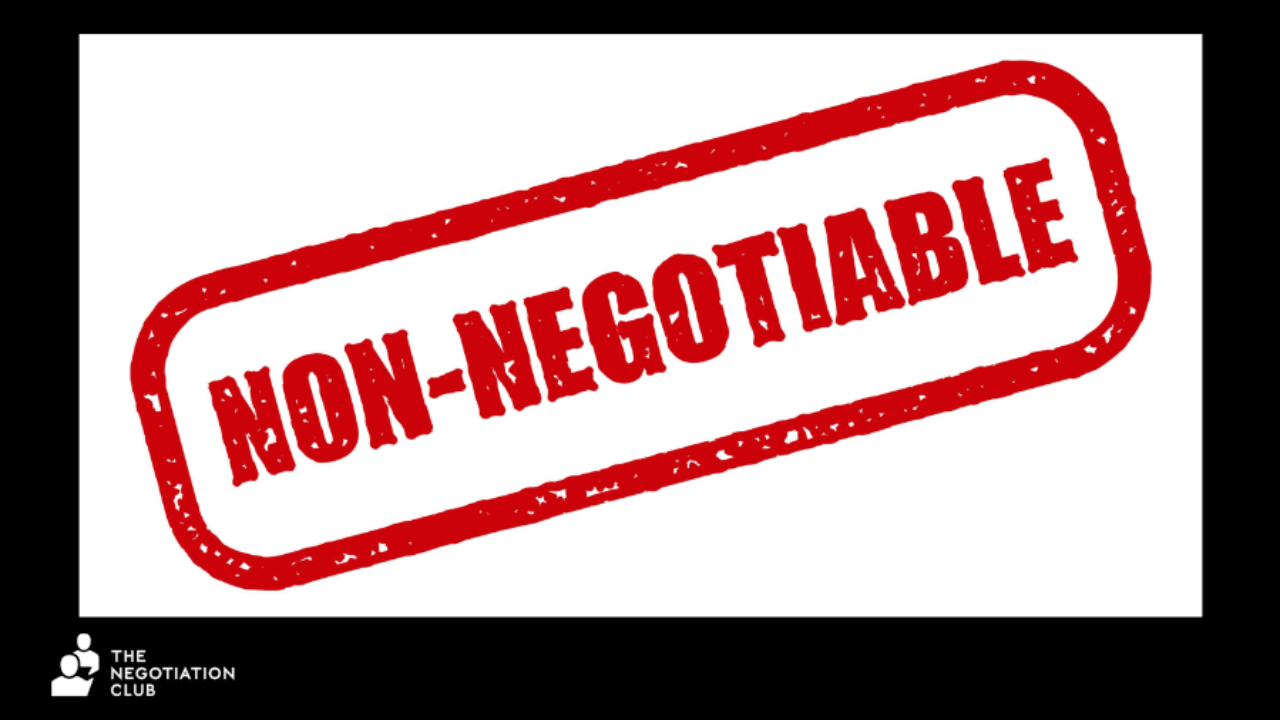Revolutionise Your Graduate Recruitment with Advanced Negotiation Training
"The Best Graduates look for the Best Graduate Programmes"
Attract, Train and ... Retain Top Graduates with Practical Negotiation Skills
Attracting and retaining high-quality graduates is more crucial than ever for sustained success and innovation in modern business.
There is no other programme that does what we do because we specialise on immediate negotiation skills development designed to be the cornerstone strategy for attracting the best UK talent, aligning perfectly with your role in shaping future leaders.
Contact us for more details here!
How Great Do You Want Your Graduates To Be?
Problem Solving?
The capacity to identify, analyse, and solve complex problems underpins every negotiation. Problem-solving courses like negotiation develop graduates critical thinking skills and resourcefulness?
Leadership?
The negotiation process offers graduates the opportunity to demonstrate leadership qualities such as taking the initiative, team working and motivating others, which can set them apart from other graduates.
Communication?
It is essential to have excellent communication skills during negotiations, whether it is verbal or non-verbal, oral or written, to collaborate with colleagues, present ideas, and build relationships.
Critical Thinking?
Through negotiation practice graduates develop critical thinking abilities to enable them to evaluate information, make sound judgments, and devise creative solutions to complex challenges, thereby adding value to the organisation.
Emotional Intelligence?
Investing in the emotional intelligence of graduates equips them with the capacity to understand and manage their own emotions, navigate interpersonal dynamics effectively, and build strong relationships, all of which are crucial for success in the workplace and achievable through negotiation practice.
Team Work?
Graduates benefit from working collaboratively in diverse teams, which enhances their interpersonal skills, promotes innovation, and develops a supportive culture within the organisation. Negotiation courses are perfect for students seeking teamwork opportunities.

Karim El Samad
"I definitely have more skills when these sessions were over rather than when they first started"

Καλυψώ Φυρογένη
"One of the best negotiation workshops I've attended. It was engaging and incredibly beneficial, placing a strong emphasis on practical application and insightful knowledge sharing!"

Curtis Crowley
"Fantastic experience - highly recommended!
Very well-organised, interactive and practical negotiation course"
Ask Yourself...
Do You Want A Programme That Sets Your Graduates Apart?
Our tailored sessions, crafted by industry experts, provide immersive learning experiences. Each module is designed to challenge and stimulate your graduates, fostering a rapid development of essential skills.
In-Person Experience
In-person negotiation courses that offer an unparalleled level of engagement. Fully immersing themselves in the dynamic, hands-on activities that make learning not just effective, but incredibly fun.
Virtual Mastery
Our zoom-based negotiation courses not only brings the same high-energy, interactive experience but with an unparalleled opportunity to observe negotiations.
Hybrid Flexibility
Graduates benefit from our uniquely engaging approach with both options crafted to ensure that learning negotiation is not only deeply impactful but also an enjoyable, interactive experience that they look forward to each time.
Comprehensive Skill Development
Negotiation skills are more than just negotiating. They develop problem-solving, critical thinking, leadership, communication and emotional intelligence... crucial for workplace success.
Structured Sessions
Choose from 4 or 8 interactive sessions, delivered through Zoom by expert facilitator Philip Brown, focusing on practical, real-world negotiation tactics.
Cohort Flexibility
Each cohort can accommodate as few as 4 participants, a maximum of 20 participants via video or as many as 40 in-person while still ensuring personalised attention and collaborative learning.
CPD Accreditation
Each Graduate is awarded a Certificate of Participation and 6 CPD hours to contribute towards any industry association of further qualification.
What does each session include?
S1: Negotiation Introduction
'New' can be uncomfortable and when it comes to practicing negotiation skills for the first time there will be many anxieties at play.
This session is about making the teams comfortable with practicing negotiations with others and introduces the use of Negotiation Cards® as a means to practice using one controlled variable.
S2: Practice with Purpose
Each and every one of us negotiates but we very rarely understand what it is that we're doing. This session introduces negotiation tactics in a non-theoretical but practical approach.
Delegates have access to a number of key negotiation tactics in advance of the session and will then attempt to “practice with purpose” a tactic during their negotiation.
S3: Observation Skills
We often fail to articulate the negotiation “story” and in this session we introduce methods of recording observations and use these observations to deliver peer-to-peer feedback.
This form of Observation will elevate your teams ability to impact the value of any negotiation.
S4: Multi-Variable Negotiations
Negotiations can be complex, and this session introduces multi-variable Negotiation Cards® for challenging negotiations.
Additional techniques are shown for recording the movement in a negotiation and how preparation is critical to negotiation success.
S5: Negotiation Preparation
Getting prepared for a negotiation can make a huge difference, but we often lack the time and experience to do so.
The purpose of this practice session is to identify the 2 types of preparation and show how to prepare and practice so that they become easier to prepare on a routine basis, and so give you the best chance to make preparation a success.
S6: Rejections in Negotiations
Despite being part of the negotiation process, rejection can also be emotionally challenging, leading to mistakes in judgement.
In this session, we explore two critical rejection forms and practice them so that we can gain a stronger understanding of rejection.
S7: Team Roles
A team negotiation is one of the most underutilised forms of negotiation.
Having a structured and uniformed team can make a huge difference in the performance of the individuals and the company's results. As well as building commercial resilience, it is also a useful tool for sharing best practices across different teams members.
S8: Team Negotiations
In addition to improving the team's ability to deliver outstanding results, practicing specific negotiation roles provides individuals with an opportunity to further enhance their personal abilities.
Team morale and team development can be transformed by problem solving, observation, and managing complexity in team negotiations.
The Times Top 100 Graduate Employers
Each year The Times publishes its Top 100 Graduate Employees which takes into account interviews with thousands of students who are asked to identify the employer they feel offers the best opportunities for graduates.
Many students will use the "employer proposition" such as the quality of the graduate training and development an employer offers to recognise the value of the scheme.
A company's brand name will mean a great deal but reputations can be eroded quickly if the experience doesn't live up to the promise.
The critical need for comprehensive training initiatives within Graduate Schemes, shows how they serve as catalysts for attracting, nurturing, and retaining top-tier talent within businesses.



